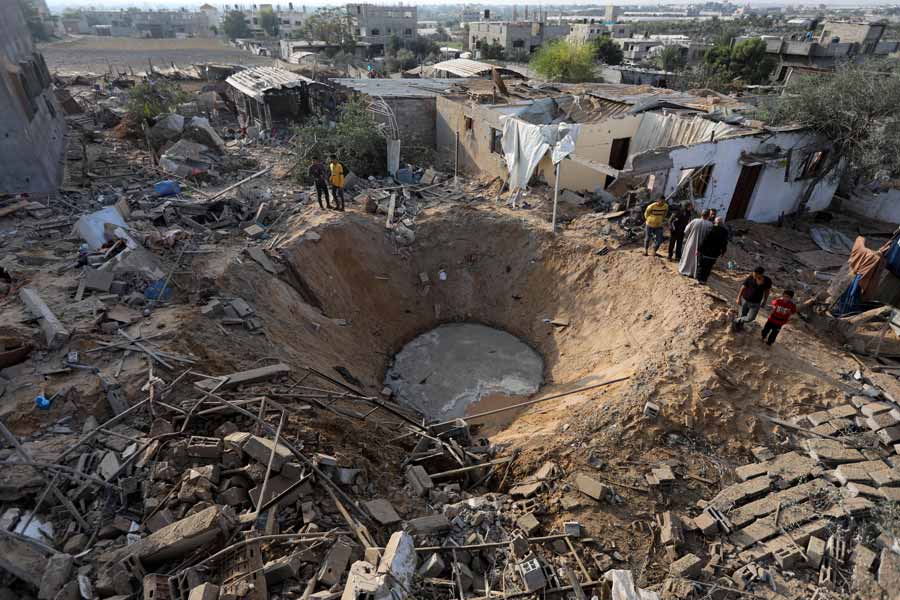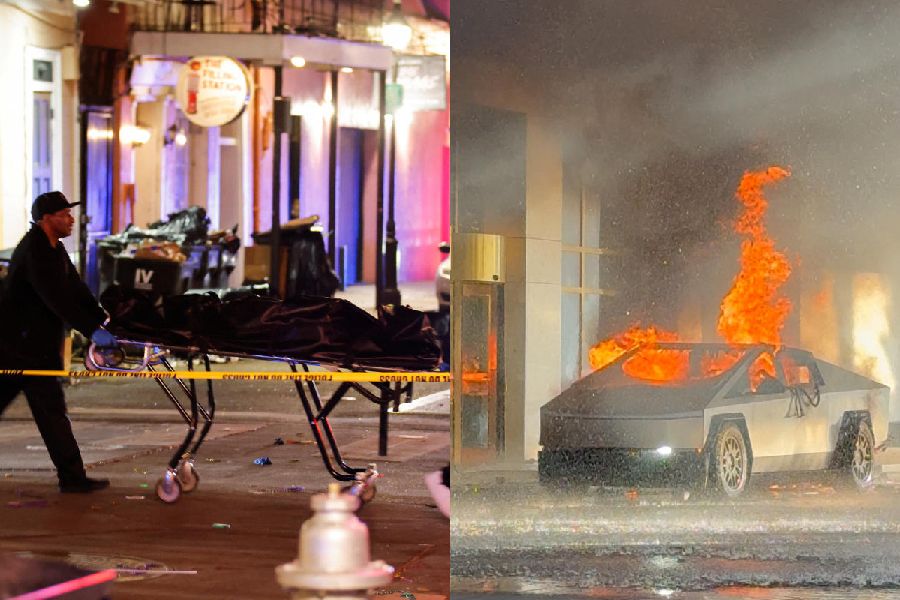- Hamas says Israel's heavy bombardment of the Gaza Strip has killed 13 hostages, including foreigners, held by the group, reports AP
Six days of Israeli airstrikes have left more than 300,000 Palestinians in the Gaza Strip homeless, with 2 million residents facing critical shortages of food, water and fuel, while Israeli troops prepared Thursday for a possible ground invasion after Hamas’ deadly assault last weekend.
Retaliating for the bloodiest attack on Israel in 50 years, Israel is pummeling Gaza with a ferocity not seen in past conflicts and has cut off vital supplies to the coastal territory. Health officials in Gaza, home to 2 million people, said the Israeli bombardment had killed at least 1,500 people and injured more than 6,600.
Israel’s military says that it is hitting places used by Hamas, which controls Gaza, including mosques, houses and other outwardly civilian locations. Gazans say the airstrikes are doing indiscriminate damage to civilians and civilian sites, and independent observers have confirmed that schools and ambulances have been destroyed.
Israel’s military warned in a statement Friday that residents of the northern Gaza Strip should relocate to the southern half of the territory within 24 hours.
The United Nations said that such an evacuation would entail moving more than 1 million people and lead to “devastating humanitarian consequences.”
The U.N. Security Council is scheduled to hold an emergency meeting Friday afternoon in a closed consultation format. The Security Council has not issued a statement about the conflict between Israel and Hamas. A statement requires the approval of all 15 members, and there have been divisions on language that would condemn Hamas’ attack but not address Palestinian grievances and the siege of Gaza.
The retaliatory strikes began after Hamas terrorists broke through the border fence with Israel on Saturday morning and attacked towns, kibbutzim and a military base, killing more than 1,200 people, most of them civilians, wounding about 3,000 and holding hostage about 150, the Israeli government said.
Gaza’s only power plant stopped generating electricity Wednesday for lack of fuel, shutting down everything from lights to refrigerators, and much of the region lacks running water. Hospitals are overwhelmed with wounded patients and running out of vital supplies; fuel for generators and vehicles is dwindling rapidly; food and water are growing scarce; and it is not clear when humanitarian aid might be allowed in.
“We are facing a huge disaster,” Adnan Abu Hasna, an official with the United Nations agency that aids Palestinian refugees, said by phone from Gaza. He described conditions as “absolutely horrible.”
With the United States stepping up its weapons shipments to Israel, U.S. Secretary of State Antony Blinken joined Israeli Prime Minister Benjamin Netanyahu at a military base in Tel Aviv to reinforce support for Israel “as long as America exists.”
“I come before you not only as the U.S. secretary of state, but also as a Jew,” said Blinken, whose stepfather, Samuel Pisar, survived Nazi concentration camps. “I understand on a personal level the harrowing echoes that Hamas’ massacres carry for Israeli Jews and for Jews everywhere.”
He added: “This is, this must be, a moment for moral clarity.”
But Blinken also suggested the need for caution in Israel’s retaliation. “It’s important to take every possible precaution to prevent harming civilians,” he said.
The New York Times News Service











